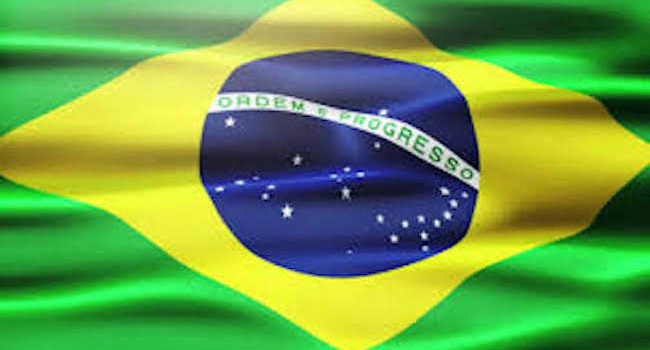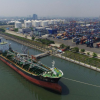How to Invest in Brazil

Brazil is a macroeconomic and political hot mess at the moment, experiencing a deep recession and a political quagmire reaching to the Presidency. Despite this, after a horrendous performance in 2015, Brazil’s currency the real performed best in the world for the first quarter of 2016 surging over 10% against the US dollar, and both equity and debt markets rallied hard. This turnaround lies squarely in an anticipation that a desperately needed political transition is nearing. As has often been the case for Brazil, and emerging markets overall, both the macro and political framework are absolutely critical for determining further market moves.
Brazil has suffered negative GDP growth in seven of the last nine quarters, and 2015’s overall -3.9% growth rate belies the huge contraction in the economy that is still underway (see chart below). While the shine was taken off Brazil’s “investor’s darling” status a few years ago when commodity prices began their steep decline, it has been the ongoing corruption scandals implicating a wide variety of government officials and prominent businessmen that has derailed public confidence and paralyzed the economy. Millions of Brazilians took to the street this year to demand a change. Consequently, impeachment proceedings have begun and the ruling congressional coalition has fallen apart, but the outcome is far from clear.
Brazil GDP Growth (%)

What is clear is that the political crisis has induced a crash in the economy. Businesses aren’t investing, consumers aren’t spending, unemployment is increasing, and the central bank has had to raise interest rates to very high levels in order to stabilize inflation (and the currency). While the economy is projected to continue this negative trajectory for 2016, asset markets are likely to gyrate depending on the unpredictable evolution of the impeachment process against President Dilma Rousseff. If an impeachment occurs, it is extremely likely that Brazilian assets will rally for some time (the new president just “has to be better!”). If she doesn’t leave office, assets will likely go back to their previous malaise unless the global situation becomes so rosy that Brazil is dragged higher.
Given the bleak economic outlook and the poor business climate, it is unsurprising that not many analysts confidently advocate exposure to the Brazil equity market (the Bovespa). As the Bovespa has historically been dominated by commodity related companies and those with strong government ties, it is unsurprising to see that the stock market performed poorly over the last five years. That said, commodities and oil seem to have bottomed out in January, and overall sentiment towards emerging markets has improved. Volatility is high, however. Given the likely binary outcome for returns, based on whether there is a change in government or not, it is difficult to advocate much of a long or short position at this time.
For investors who have a strong stomach and want to get involved, there are many actively managed funds which own Brazil stocks (both global emerging market funds and dedicated funds). There are also ETFs that represent the Brazil stock index, such as iShares’ EWZ. Finally, many of Brazil’s largest companies have ADRs, so that investors can buy shares on the New York Stock Exchange and other global locations. Many worthy Brazilian companies are global in nature, though domiciled in Brazil. Consequently, they are driven more by global and industry factors than country ones. For example, despite being headquartered in Brazil, Ambev is currently the 5th largest brewery company in the world, and has sources of revenues across several continents.





